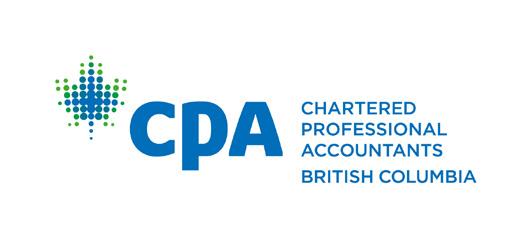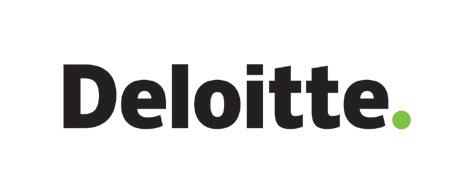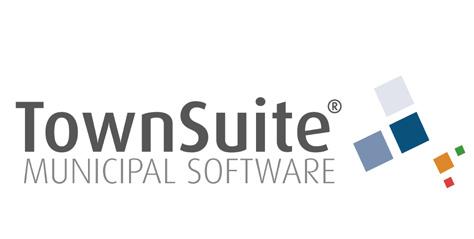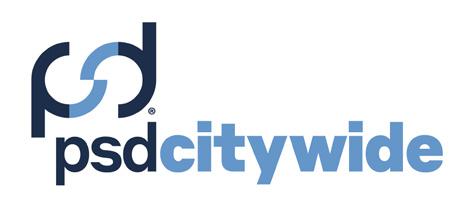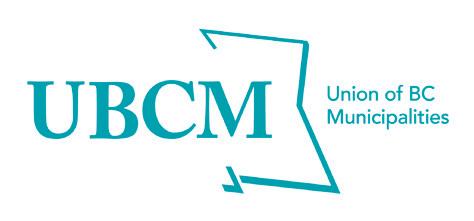
9 minute read
Celebrating 30 Years in Local Government
Valla Tinney’s retirement
On August 31, the Finance Management group at the District of Saanich held a celebration for Valla Tinney’s retirement.
Advertisement
Known as much for her financial footwork as her fancy footwear, Valla joined Saanich in 2012 as Director of Finance and quickly became a source of knowledge and guidance to many Councils. Saanich is stronger financially because of her leadership, strategic and financial planning, particularly in the areas of reserves and financial sustainability. The Finance team has modernized many processes under her watch and built a team ready for the long term.
Valla served eight terms on the GFOABC Board of Directors, two of which as President (2010-2012). During her tenure, she was instrumental in bringing GFOABC to the national and international stage with recognition by GFOA International for innovation in educational programs for the creation of Boot Camp, otherwise known as the Finance Officers Development Program. Since its creation, more than three hundred and fifty local government finance officers and staff have competed for the golden boot!
Valla also represented members on the Municipal Pension Plan Committee and guided GFOABC in developing the procurement toolkit for the benefit of all local governments throughout BC.
Over her tenure in local government finance, which included stops in Esquimalt, View Royal, and Sidney, Valla became a mentor to many future local government leaders. She has been a huge supporter of careers in local government, through co-op opportunities, encouraging staff to obtain professional designations, gaining exposure to all areas of finance and being a mentor to those she has hired and worked with, with many in attendance at her retirement celebration. Thank you Valla for all you’ve done for local government finance and the GFOABC. You leave behind an incredible legacy and we wish you all the best in your retirement.
It’s been an amazing, complicated, challenging and rewarding 30 years. I am ready to sit down, put my high heels up and get a bit of rest…before I take on the next adventure.

This article was written with contributions from Shelley Hahn, Lenora Lee, and Valla Tinney.


collectors’ corner
taxes and penalties
So, another ‘tax time’ has come and gone. Overall, it seemed to go pretty well. But that pesky penalty! Besides the regular reasons for not paying their property taxes by the due date (e.g. “It’s not my fault. Canada Post didn’t deliver my payment to you on time!” Or, “The internet was down!”), some taxpayers are still struggling with the centralized Property Tax Deferment program and the second year of the centralized Home Owner Grant program. And now, after two years of the COVID pandemic, generally people are more easily upset, even angrier. And who do they take their angst out on? You on the frontline. So, what about that penalty?
With permission, here is a reprint of the article written by Tanya Garost, CAO, District of Lake Country in the June 2011 GFOABC Newsletter Collectors’ Corner. In 2011, Tanya was the Revenue and Taxation Manager for the City of Kamloops.
“Hooray, we have all survived another tax season! For some of us, our property tax due date will have just passed. It will be quite interesting to see how many payments
26 | GFOABC.CA
get delivered after the due date as a result of the postal strike. That could mean a lot of penalties and angry taxpayers, even if you do accept postmarks! At this time of the year, I always keep the legislation that discusses penalties within arms reach. Taxpayers always want to know what gives us the right to penalize them for paying late when they are hardworking and loyal citizens who have always paid on time! We have all heard the stories! Section 234 (2) of the Community Charter states The Lieutenant Governor in Council may make regulations establishing penalties and interest that must be applied by municipalities in relation to payments made after the tax due date. The regulation that deals with penalties is the Municipal Tax Regulation B.C. Reg. 426/2003 which includes amendments up to B.C. Reg. 336/2008. Part 3(a) states the collector must add to the unpaid property taxes for the parcel and improvements for the current year a penalty equal to 10%.
“The important word in both of those pieces of legislation is the word MUST. As collectors we don’t have a choice, we must always add the penalty. (Well, almost always. There is the odd time when we, as the tax collecting office, gasp, makes a mistake. In that case, the situation should be set back to the point as if the mistake had never occurred including reversing any penalties that may have been incurred.) Penalties properly applied under the legislation have been challenged in court and the legislation has been upheld many times. So apply your penalties and then stay strong. You are not alone in this effort! Happy collecting and have a great summer!”
DOUG STEIN has worked in municipal finance for over 30 years. In 2011 he retired from his position as Manager of Revenue Services for the District of Saanich. Doug leads the Collectors’ Forum, is a GFOABC Life Member, and a CPA, CMA.

Clearview Township replaces vehicles and saves $200,000 on acquisition costs.
Stayner, ON, Canada • Government | Township • 39 vehicles
THE CHALLENGE
Clearview Township needed to improve the management of their aging fleet vehicles and reduce costs. The pandemic presented budgeting constraints impacting the township’s ability to replace vehicles.
THE SOLUTION
Clearview Township partnered with Enterprise Fleet Management, which was referred by an affinity program with the LAS and the Canoe Procurement Group. The Enterprise team presented a proactive vehicle replacement plan to build fleet equity, also incorporating a vehicle maintenance program to reduce administrative strain on the township.
KEY RESULTS
Average fleet age improved by 7 YEARS
OVER $125K
VEHICLE RESALE VALUE
OVER $200K
IN ACQUISITION SAVINGS
When the Enterprise Fleet Management program was introduced to the Township of Clearview, there was some skepticism on my part, ‘how can we turn our entire light duty fleet over in just 1 year?’ Our Enterprise team has strategically demonstrated how the fleet program works and its impact to the township. Faced with vehicles at various ages and high mileage, this was an easy way to modernize our fleet and lower maintenance and capital costs. The township now has a long-term plan to continually modernize the fleet to provide excellent service to our community.”
– Dan Perreault, Dep. Director of Public Works
THE RESULTS
Through the Enterprise Fleet Management plan, Clearview Township was able to recognize over $200,000 in acquisition savings while also unlocking over $120,000 in vehicle resale equity. Because vehicles are replaced more frequently, the average age of the fleet has improved by 7 model years, and the average odometer reading improved by 90%. Enterprise’s proactive strategy
long-term will help the township improve cash flow and provide peace of mind for their employees and vehicles through the effective management of maintenance, fuel, and depreciation costs.
WE HAVE OVER 100 CLIENT SUCCESS STORIES, VISIT EFLEETS.COM/CASE-STUDIES TO DISCOVER MORE.
quarterly question results
HOW DO LOCAL GOVERNMENTS MANAGE DELINQUENT TAXES AND PROPERTIES SUBJECT TO TAX SALE?
The results are in with nearly 50% of municipalities responding.
We asked when a property’s unpaid tax becomes delinquent and subject to tax sale, when does the local government issue notices or alert to the property owner? 100% of respondents said their municipalities send out one notice, while only 72% report issuing a 3rd.
Tax Sale Notices 2021-2022
Month issued: 1st 2nd 3rd January 17.3% 0.0% 0.0% February 12.0% 1.4% 0.0% March 1.3% 1.4% 0.0% April 5.3% 1.4% 0.0% May 10.7% 13.9% 0.0% June 1.3% 0.0% 1.9% July 32.0% 27.8% 14.8% August 18.7% 43.1% 35.2% September 0.0% 11.1% 46.3% October 0.0% 0.0% 1.9% November 0.0% 0.0% 0.0% December 1.3% 0.0% 0.0%
When no response is received from the taxpayer 56% of municipalities report performing in person visits to the property. 48% of these local governments regardless of size report that finance personnel perform the in person visit either solo or in the company of an additional staff member. 95% of these visits are done in August and September.
LENDER COMMUNICATION?
92% of municipalities report the outstanding taxes to the lender associated with the property. The months the lender is most often contacted: July 26.1% Aug 52.2% Sept 17.4%
When we asked if local governments had ever contacted the Public Guardian and Trustee to investigate a person’s capacity in the case of a pending tax sale, most local governments reported they had not: No 81% Yes 19%
DELINQUENT AND SUBJECT TO TAX SALE?
At January 1, 2022, 91% of municipalities reported properties considered delinquent and subject to tax sale for September 2022 with an average volume of 79 properties and median of 28 properties.
Some of the many methods reported for tracking down taxpayers beyond phone calls, contacting the lender and in person visits were:
• BC Land Title & Survey • Facebook • Canada 411 • Newspapers • Contact family members
Detailed results for this survey can be obtained by emailing surveys@ civicinfo.bc.ca
NEXT NEWSLETTER PUBLICATION IS DECEMBER
Please contact us if you would like to submit an article or suggest a newsletter topic: office@gfoabc.ca • (250) 382-6871

Thank You Exhibitors

